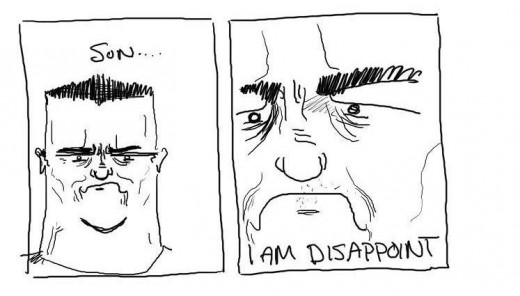Where do memes come from? - The origin of the meme

Nowadays the word ‘meme’ is used for pictures, videos and stories on the Internet that reach great popularity amongst people in a short time span. But originally the term was used for something different, though related to the Internet meme. The word was introduced by Richard Dawkins in his book The Selfish Gene. But why would there be a need for such a word, and what does it stand for? To understand this, I will give you a small introduction into the philosophy of biology. Specifically: applying Darwinism to social sciences.
Now this may be a weird idea. I realize that many of you may only know Darwinism to be applicable to nature, through the concept of natural selection. However, as you will see, it applies to society as well. This is easily demonstrated by looking at those things that we, humans,do without it giving us any personal gain whatsoever. Take something as simple as a favor. If I were to see you walking down the street with heavy groceries, I may offer you some help. Me helping you would not provide me with any real benefits. On the contrary, it would cost me energy and time, making me less prone to survival. Obviously, me helping someone out won’t instantly render me lifeless, but you get the gist. So why would I help you out? My first answer if someone asks me this would be: because it is the nice thing to do. But we all know nature does not work this way, for if we all did solely those things that are nice to do, we wouldn’t have survived for one month. So what benefits does helping someone out give us then? It seems it gives us no direct profit personally, but it does give us profits on a societal level. Furthermore, it is an investment in the future. Maybe next time I will be walking around with heavy groceries, and you will help me. Investing in the future does not correlate however with the idea of acting upon individual fitness. After all, what guarantee do I have that you will actually help me next time? (For those who are interested in our reasons to nevertheless do these things, I would refer you to an experiment called ‘The Wason selection test’ that shows our built-in ‘cheater detection’ capacity.)

So what does this have to do with Darwinism? Like I argued, helping someone out gives society a profit. One would believe that if this wasn’t beneficial, people would’ve stopped doing it a long time ago. But is has been beneficial, and we have been doing it for ages. Now why would we act like this? Is it possible that our genes make us do it? But then, what would explain for the different ways people all across the world act upon each other? We share our genes with people all across the world, but our societies differ significantly. Furthermore, how do genes translate into behavior? Also, many traits have been shown to be very susceptible to environmental causes, so how could they be caused solely by genes? These questions call out a different view: what if there is a form of Darwinism without genes? It would provide an explanation for the way society seems to have developed as if it were an organism; favoring certain behaviors that may not pay off for the individual immediately, but raise the fitness of society as a whole.

So there is something called social Darwinism, this still doesn’t tell us anything about the origin of memes. Or does it? In natural Darwinism, there is such a thing as a ‘replicator’, units that transmit the information from individual to individual, namely: genes. Now if there is such a thing as social Darwinism, what would be the replicator? This is where Dawkins introduced his term: the meme. To understand what role a meme plays in social Darwinism, reflect upon this example:

A few centuries ago people didn’t care for hygiene as much as we do now. However, somewhere along the line, someone decided to go and wash their hands before having dinner. This reduced the chances of this person getting sick, and therefore poses a positive contribution to this individuals fitness. This behavior was then replicated by others, also enhancing their fitness.
In this example the meme would be washing one’s hands. Now, memes can be a lot of things. It can also be negative behavior, like doing drugs, and it can be things like a piece of music that someone whistles, and consequently is stuck inside your head. Memes are how designers learn their fans how to dress, because their fans imitate their ideas on how to dress. Memes aren’t unique for human beings. Birds learn their songs by imitating their parents, the songs being copied and transferred from the brain of the parents to the brain of their offspring.
Now, we mustn’t forget that memes sometimes do need genes. Take language for instance. It has been shown that small children have an innate ability to learn languages. Without this ability children wouldn’t be able to learn a language. As with many things in nature; there is no mutually exclusive situation.
So as you see, memes aren’t simply popular subjects on the internet, although the idea behind internet memes is obviously coherent with the idea of the origin of the word meme. Memes are in fact ideas, social conventions, behaviors and all those things one person can transfer to another without it having a physical form. Memes are what makes it possible for Darwinism to be applied to societies, by fulfilling the role of the replicator.
If you are interested in knowing more about classical memes and (social) Darwinism, I refer you to the book Philosophy of Biology – a contemporary introduction by Alex Rosenburg and Daniel W. McShea.








